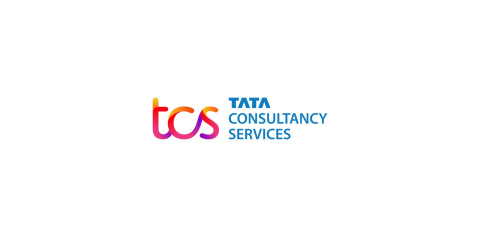Tata Consultancy Services (TCS) Share Price Target at Rs 3,800: Kotak Securities
Kotak Institutional Equities has issued a BUY Call on Tata Consultancy Services (TCS), maintaining a fair value target of Rs3,800 per share. Despite a disappointing quarter marked by a revenue decline and execution slippages, the research house remains optimistic about TCS’s medium- to long-term prospects, citing its adaptability, robust client relationships, and potential to capitalize on generative AI.
Kotak Institutional Equities: BUY Call and Valuation Levels
Kotak Institutional Equities reiterates its BUY recommendation for TCS, with a fair value of Rs3,800 per share and a current market price (CMP) of Rs3,382. The stock has a 52-week range of Rs4,520 to Rs3,056, and a market capitalization of Rs12,236 billion (US$142.8 billion). The research house’s conviction is underpinned by TCS’s enduring strengths and its capacity to navigate industry headwinds.
Key Levels for Investors:
Current Market Price (CMP): Rs3,382
Fair Value Target: Rs3,800
52-Week High/Low: Rs4,520 / Rs3,056
Recommended Action: BUY
Revenue Misses and Execution Challenges
TCS reported a sequential revenue decline of 3.3% in constant currency, missing estimates by 290 basis points. The shortfall is primarily attributed to the ramp-down of the BSNL program, with additional softness in international operations. The company’s revenue for the quarter stood at US$7,421 million, a 0.6% decline quarter-on-quarter and a 3.1% drop year-on-year in constant currency.
Execution issues are evident across multiple verticals and geographies, with notable underperformance in healthcare and telecom. The lack of mega deals, aside from intra-group transactions, and a sharp contraction in the TCS E-Serve subsidiary’s top account further underscore operational shortcomings.
Margin Trends and Profitability Analysis
EBIT margin improved by 30 basis points quarter-on-quarter to 24.5%, largely due to the reduced impact of the margin-dilutive BSNL program. Net profit rose to Rs128 billion, up 4.4% sequentially and 6% year-on-year, surpassing expectations by 3.3%. This was aided by higher other income (notably, Rs6.76 billion in interest from tax refunds) and a marginally lower tax rate.
However, margin pressure is intensifying, driven by higher employee costs and weak operating leverage from subdued growth over recent years. The employee pyramid has deteriorated, with a declining proportion of younger staff, suggesting further margin headwinds if growth does not recover.
Deal Wins, Pipeline, and Growth Outlook
TCS secured total contract value (TCV) of US$9.4 billion, reflecting healthy deal closures. While BFSI and North America segments saw moderate wins, retail posted strong year-on-year growth. The deal pipeline remains robust, and management projects improved international growth in FY2026 versus FY2025. However, Kotak Institutional Equities views this optimism with caution, citing persistent macro uncertainty and execution risks.
Sectoral and Geographic Performance
Revenue declines were broad-based, with the UK and Europe registering sequential drops. The India business contracted sharply by 31.4% quarter-on-quarter, primarily due to the BSNL ramp-down. Vertical-wise, telecom, healthcare, and retail experienced the steepest declines, while BFSI growth lagged peers.
Table: Revenue Growth by Geography and Vertical (June 2025)
| Geography/Vertical | QoQ Growth (%) | YoY Growth (%) | Revenue Mix (%) |
|---|---|---|---|
| North America | 0.4 | -2.7 | 48.7 |
| UK | 6.5 | 5.3 | 18.0 |
| India | -31.4 | -23.5 | 5.8 |
| BFSI | 2.0 | 2.4 | 32.0 |
| Healthcare | 0.4 | -8.3 | 10.2 |
Competitive Landscape and Valuation Premium
TCS’s competitive edge over peers has diminished, with Infosys and HCL Technologies catching up in large deal structuring and digital competencies. The valuation premium TCS historically enjoyed has eroded, with the stock now trailing both HCLT and Infosys on a price-to-earnings basis.
Generative AI: Opportunity and Threat
TCS is strategically positioned to benefit from generative AI adoption, leveraging its deep client relationships and experience in data and AI practices. However, the initial years of AI integration are expected to bring revenue deflation, particularly in software development and BPO, posing a challenge to offsetting these headwinds with new opportunities.
Key Risks and Investor Takeaways
Macro tailwinds remain elusive, and the disconnect between deal wins and revenue realization persists. Clients are focused on cost optimization and vendor consolidation, with discretionary spending still under pressure. Decision-making and ramp-up timelines are extended, reflecting ongoing uncertainty.
For investors, the stock presents a compelling long-term opportunity, but near-term underperformance is likely. Kotak Institutional Equities projects a 0.1% revenue decline (ex-BSNL) for FY2026, with EPS growth expected to recover to 4.7% in FY2026 and 8.0% in FY2027.
Stock Levels, Forecasts, and Valuation Table
| Year | EPS (Rs) | P/E (x) | Sales (Rs bn) | Net Profit (Rs bn) | Dividend Yield (%) |
|---|---|---|---|---|---|
| 2025 | 134.2 | 25.2 | 2,553 | 486 | 3.4 |
| 2026E | 140.5 | 24.1 | 2,582 | 508 | 3.4 |
| 2027E | 151.8 | 22.3 | 2,803 | 549 | 3.7 |
Long Term View on TCS
While TCS faces formidable near-term challenges, its resilience, diversified portfolio, and strategic investments in AI position it for a recovery as macro conditions stabilize. Investors should view the current weakness as an opportunity for accumulation, with a clear eye on the Rs3,800 target. However, patience and vigilance are warranted as the company works to restore its historical growth trajectory and margin leadership.
